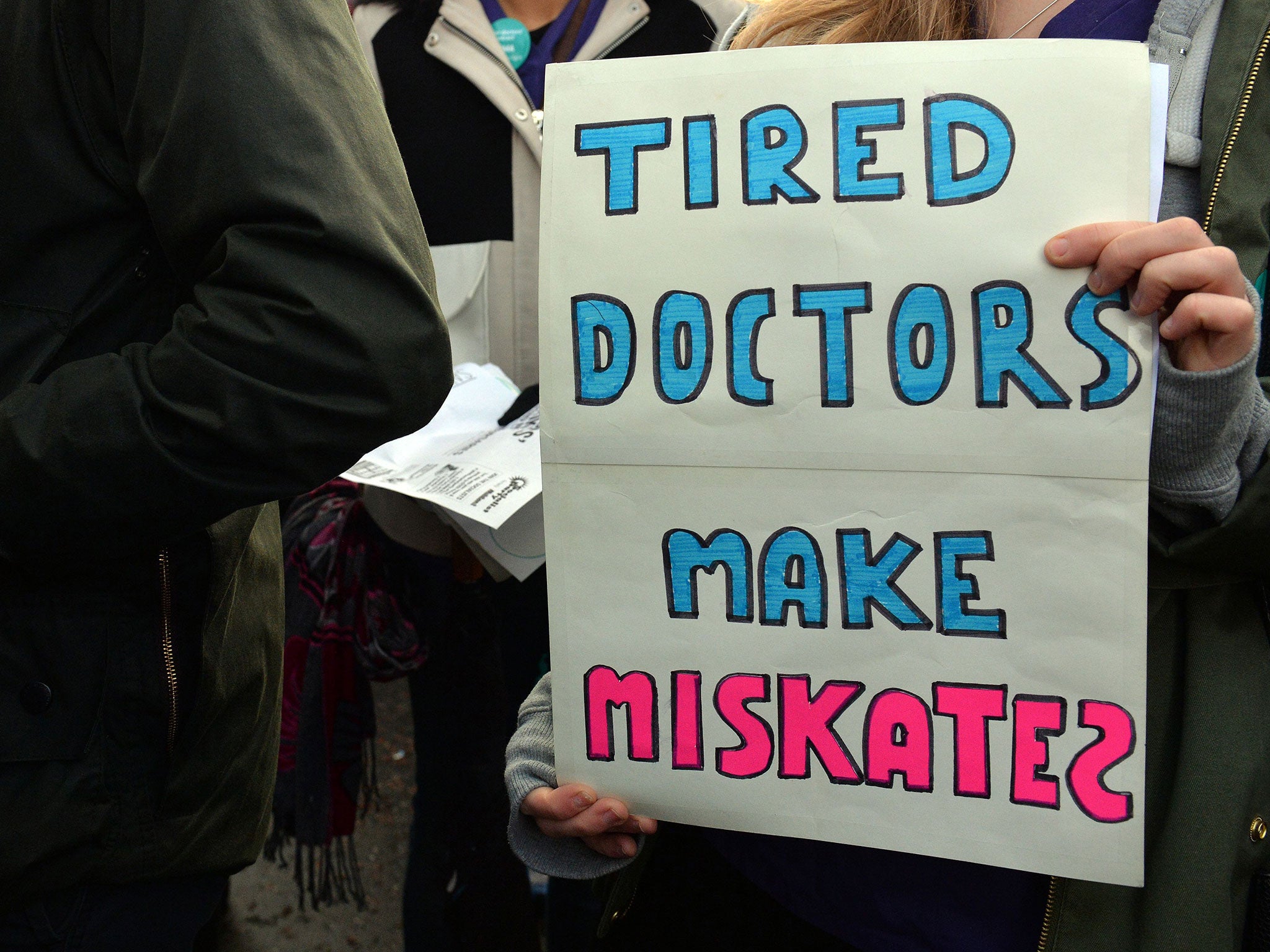Junior doctors: New contract 'risks disrupting medics' sleep patterns'
Expert assesment submitted to MPs says excessive working hours could put the safety of patients at risk

Your support helps us to tell the story
From reproductive rights to climate change to Big Tech, The Independent is on the ground when the story is developing. Whether it's investigating the financials of Elon Musk's pro-Trump PAC or producing our latest documentary, 'The A Word', which shines a light on the American women fighting for reproductive rights, we know how important it is to parse out the facts from the messaging.
At such a critical moment in US history, we need reporters on the ground. Your donation allows us to keep sending journalists to speak to both sides of the story.
The Independent is trusted by Americans across the entire political spectrum. And unlike many other quality news outlets, we choose not to lock Americans out of our reporting and analysis with paywalls. We believe quality journalism should be available to everyone, paid for by those who can afford it.
Your support makes all the difference.The new junior doctor contract risks disrupting the medics’ sleep patterns – leading to fatigue, impacting on their health and potentially risking patient safety, according to an expert assessment submitted to MPs.
Any increases in the number of night and weekend shifts doctors would have to work will risk “increased disruption of junior doctors’ circadian rhythm and increase their social isolation”, according to researchers at the Cass Business School.
In written evidence for the House of Commons Public Accounts Committee (PAC), which is conducting an inquiry into NHS staffing levels, experts in workforce management and mathematics said that if the terms of the new contract were applied to the workforce at its current size, junior doctors could face excessive working hours that would risk patient safety.
The Government has pledged that the maximum number of consecutive night shifts will be reduced from seven to four, and that doctors will get a minimum 48 hours’ rest after a run of three- or four-night shifts.
Maximum hours worked in a week will be reduced from 91 to 72, according to the NHS Employers organisation.
However, in their evidence to the PAC, the Cass Business School experts said that the “fatigue impact” of how doctors are rostered “greatly depends upon the way in which the work is distributed over a given period and not only on the total amount of work”.
They said a “significant increase in the number of junior doctors may be required” to meet the terms of the new contract while also ensuring that wards continued to be well-staffed all through the week.
Explainer: The circadian rhythmn
The phrase circadian rhythm refers to our biological clock. The word has origins in Latin, roughly meaning “about a day” – and the term covers all the bodily functions that are affected by our innate sense of day and night; when we should sleep, and when we should be awake.
Disrupting the circadian rhythm by missing a night’s (or several nights’) sleep can lead to symptoms of insomnia and also excessive sleepiness or fatigue, which has an effect on our cognitive abilities, making it difficult to concentrate and make decisions.
“The ambiguities of NHS Employers’ new contract, especially regarding the reclassification of social time and night duties, poses a genuine risk that implementation by employers will result in increased disruption of junior doctors’ circadian rhythm and increase their social isolation,” they write. “This will, in turn, have an impact on their health, well-being and may breach employer duty of care.”
The evidence was seized upon by the British Medical Association, which said that the new contract, which Jeremy Hunt has decided to impose on junior doctors, was “far from ready for implementation”. But the Department of Health pointed out that the terms had been “endorsed as fair and reasonable by senior NHS leaders”.
Join our commenting forum
Join thought-provoking conversations, follow other Independent readers and see their replies
Comments